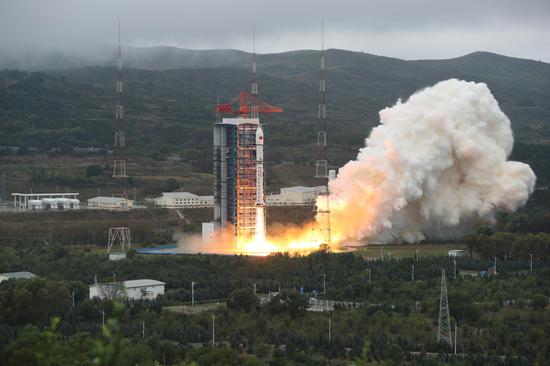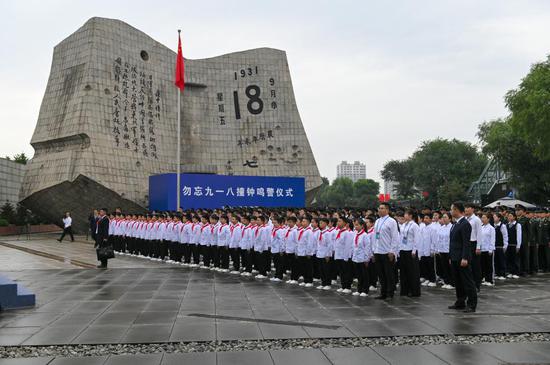
Employees install solar panels at a power station in Zhangye, Gansu province, on Sept 7. (YANG XIAO/FOR CHINA DAILY)
Non-fossil fuel power capacity surged 78.5% since 2021
China's renewable energy capacity surged to 1.27 billion kilowatts by the end of August, accounting for 40.7 percent of the nation's total power generation capacity, amid the country's accelerating efforts to reduce its reliance on fossil fuels and transition toward a greener low-carbon economy, said the China Electricity Council.
The growth in renewable energy — such as wind, solar and biomass — has driven a significant rise in non-fossil fuel power capacity, said Yang Kun, executive vice-chairman of the council, at the 2024 New Power System Development (Chongli) Forum on Thursday.
China's push to build a new power system has supported the rapid expansion of renewable energy. Since the start of the 14th Five-Year Plan (2021-25), China's non-fossil fuel power capacity has surged 78.5 percent, Yang said.
Data from the council revealed that in August alone, non-fossil energy accounted for 40 percent of the nation's total electricity consumption, an increase of 53.4 billion kilowatt-hours year-on-year, covering two-thirds of the monthly rise in power demand.
Green electricity refers to power generated from renewable sources such as wind, solar, biomass, hydropower and geothermal energy. In recent years, sectors like energy, steel and digital services have led the way in green electricity consumption, as companies increasingly adopt low-carbon production methods to support China's energy transition and carbon goals, said the council.
Zhu Yicong, vice-president of renewables and power research at global consultancy Rystad Energy, said renewable installation has surged since last year and the momentum has not been slowing down.
"We have seen combined wind and solar capacity surpass coal capacity in June this year, which is an important milestone for China's power sector energy transition," Zhu said.
"This rapid development has also posed challenges, as rising curtailment rates, grid congestion issues as well as land resource shortages for utility-scale projects emerge in certain areas. Actions to tackle these challenges are underway, including promoting development of energy storage, enhancing grid system capabilities, encouraging integrated energy source development, and formulating locally adapted development strategies for different areas."
"Thanks to strong and sustained policy support, a mature domestic supply chain and reliable grid systems, we expect China's renewable capacity to continue such strong growth going forward," Zhu added.
The green energy push has also spurred the growth of China's green power market. From January to August, green electricity transactions soared to 177.5 billion kWh, a 223 percent year-on-year increase, reflecting the growing demand for renewable power from sectors including energy, steel and internet services, said the council.


















































 京公网安备 11010202009201号
京公网安备 11010202009201号
